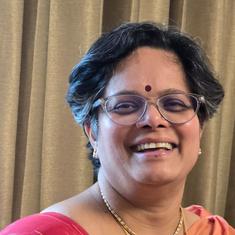Implying that female circumcision should continue in countries such as India where the practice has not been made illegal, spiritual leader of the Bohra community, Syedna Mufaddal Saifuddin on Monday issued a press release upholding the decision of Bohra trusts in other places to end the practice where it is against the law.
"These resolutions reflect the repeated directions of Syedna Mufaddal Saifuddin to respect the law of the land and live as worthy and contributory citizens within prevailing laws," the press statement said.However, even as he confirmed the validity of those decisions, the Syedna clarified that circumcision was a religious obligation for all Bohras.
“Male and female circumcision (called khatna and khafz respectively) are religious rites that have been practiced by Dawoodi Bohras throughout their history,” the statement said. “Religious books, written over a thousand years ago, specify the requirements for both males and females as acts of religious purity.”
Dawoodi Bohras, a community of Shia Muslims mostly from Gujarat, have a wide diaspora around the world. The community practices khatna as the removal of the clitoral hood, which falls under Type-I Female Genital Mutilation according to a classification by the World Health Organisation. However, the community refers to this not as mutilation, but circumcision. They are the only community known to practice female genital mutilation in India, where the practice is not illegal.
Just before an Australian court in Sydney convicted three Bohras for the circumcision of two young girls in March, anjumans, or trusts that supervise community affairs in specific places around the world, began issuing letters asking their followers to stop practicing female circumcision. This was Australia's first trial for female genital mutilation. The convicts, including the girls’ mother, were given 15 months in prison.
Since then, at least 20 anjumans in countries including the United States, the United Kingdom, Canada and Australia have issued statements to their congregations to comply with local laws that prohibit female genital mutilation.
Mixed messaging
While activists campaigning to end the practice in their community welcomed these letters as they were released, on April 25, a recording reported to be of a sermon of the Syedna’s began to circulate on social media. In a statement that was widely reported, a person believed to be the Syedna defended khafz as a religious duty and defied foreign authorities to prevent the practice from taking place.
The Times of India quoted a translation of a recording thought to be from his sermon:
“It must be done. If it is a man, it can be done openly and if it is a woman it must be discreet. But the act must be done. Do you understand what I am saying? Let people say what they want…but Rasoolullah [Prophet Mohammed] has said it…Rasoolullah will never say anything against humanity. He has only spoken [of] what is beneficial…from the perspective [“haisiyat”] of the body and the soul. What do they say?…that this is harmful? Let them say it, we are not scared of anyone.”
His reported sermon cast the authority of the decisions of the jamaats into doubt. His current statement now makes the position of the religious leaders clear in upholding the validity of both the jamaats' letters and the practice in countries without bans in place.
“The Syedna has clarified his position, which I believe promotes gender-based child abuse in countries where [female genital mutilation] is not yet banned,” said Farzana Doctor, an author and social worker in Toronto who belongs to the Bohra community. “This sends a mixed message to followers (why should some girls be protected and others harmed?). I hope Indian politicians take heed that khatna is [female genital mutilation], and ban the practice there.
There is however by no means any consensus on the practice. Last month, the rival Syedna also acknowledged khatna or khafz as a religious practice valued in the texts, but that it should be a matter of choice for adult women and not be practiced on children.
Activists around the world have expressed disappointment with the Syedna’s statement.
“I’m disappointed that the Syedna is not willing to listen to the voices of so many Bohra women who have suffered as children, and continue to suffer as adults, and proclaim khafz a practice that is the choice of an adult woman rather than being forced on a young girl,” said Zehra Patwa, a Bohra member of the group Speak Out Against FGM, who lives in the US. “If there is no compulsion in Islam, then a Muslim must choose to do those things that are prescribed by Islam, not have them forced on them.”










